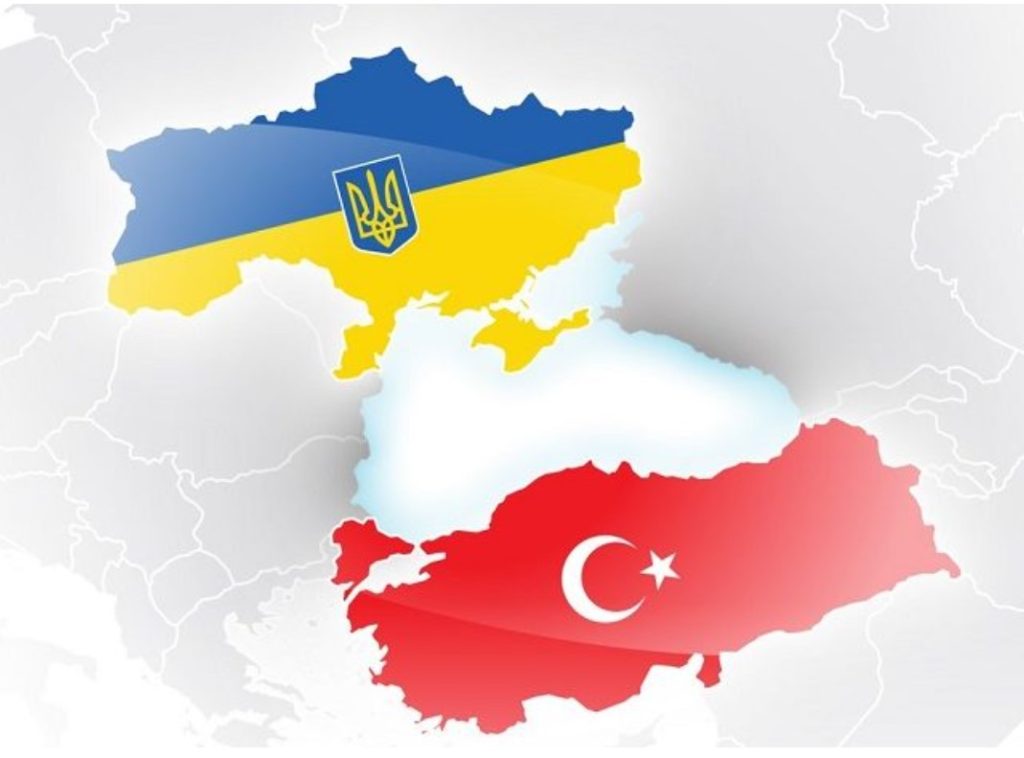While the war in Ukraine continues to rage, some are already looking ahead to what will happen when the guns fall silent and the construction work begins. In July, Ukraine’s prime minister estimated that rebuilding the country’s devastated cities, towns and infrastructure would cost $750 billion. Amid the destruction has come opportunity for others and Turkey is the frontrunner to eventually become one of the big financial winners of the conflict, especially if it manages to preserve good ties with both Moscow and Kyiv.
Since Russia launched its so-called special military operation in Ukraine, Turkey has attempted to portray itself as a mediator in the conflict. As a result of the Turkey-brokered talks in Istanbul in March, Russia withdrew its troops from around Kyiv and the northeastern regions of Chernihiv and Sumy. In July in Istanbul, representatives of Russia, Ukraine and Turkey signed a grain deal that allowed Ukraine to stabilise its budget by exporting millions of tons of cereal via the Black Sea. The agreement also had a positive impact on the Turkish economy, given that Ankara is now able to buy grain from Ukraine and Russia at lower prices.
Turkey now aims to improve its positions in the Black Sea region. According to a memorandum of understanding signed by Turkish Trade Minister Mehmet Mus and Ukrainian Infrastructure Minister Oleksandr Kubrakov in Lviv on August 18, Turkey will play an important role in the reconstruction of the country. Turkish companies are expected to rebuild the bridge in the village of Romanivka that connects Bucha and Irpin with Kyiv. Such action could send a powerful and symbolic message: If the reconstruction takes place before the war officially ends, or at least before Moscow and Kyiv sign a ceasefire agreement, it would be a clear sign that Russia has given up plans to seize the Ukrainian capital.
Moreover, if the Turkish company Baykar is really building a drone factory in Ukraine, as Ukrainian ambassador to Turkey Vasyl Bodnar suggests, it is yet another indication that Ankara knows something that the rest of the world does not. It is improbable that Turkey would start such an expensive project if it had not received guarantees from Moscow that the plant would not be a target for the Russian military.
Ankara is quite aware that its military cooperation with Ukraine will not affect relations with the Kremlin. The very fact Russia has not attempted to prevent Turkey from selling Bayraktar drones to Ukraine perfectly illustrates that Ankara has strong leverage over Moscow. Isolated from the West, Russia is using Turkey as a transit hub and is actively increasing its economic cooperation with Ankara. Under the current geopolitical circumstances, the Kremlin will have to turn a blind eye to almost every Turkish action in Ukraine.
It is no secret that Turkey sees Crimea, a region under Russian control, although internationally still recognised as part of Ukraine, as its own zone of influence. Historically, the disputed peninsula spent longer as a protectorate of the Ottoman Empire than part of the Russian Empire or Soviet Union. It is, therefore, not surprising that Ankara aims to position itself as a patron of the Crimean Tatars, the ethnic group indigenous to the peninsula.
Turkish authorities have recently started issuing long-term residence permits to Crimean Tatars, who are Turkic-speaking Muslims. According to Turkish laws, only foreigners who have been living in the country continuously for eight years can obtain a long-term residence permit. However, Meskhetian Turks, Uighurs, ethnic Turks from Bulgaria and Greece and now the Crimean Tatars are exempt from this. Ankara is probably aiming to integrate the Crimean Tatars into Turkish society, but at the same time, Turkey is looking to increase its influence among the Crimean Tatars still living in Crimea.
Although Ukraine restoring its sovereignty over Crimea seems a long way off, the very fact that Kyiv has started actively striking Russian positions in the region suggests that, sooner or later, Crimean towns and cities could suffer heavy damage. After the war, if Ukraine manages to recapture Crimea, the territory, just like many other Ukrainian regions, will need extensive reconstruction. With its historic links there, Turkey would be very interested in playing a crucial role in rebuilding on the peninsula.
In the meantime, Ankara will seek to preserve good ties with both Moscow and Kyiv and to increase its role as a mediator. Turkish President Recep Tayyip Erdogan hopes to revive the negotiations between Russia and Ukraine based on the parameters that were formed in Istanbul in March. However, Kyiv is not willing to negotiate until Russian troops withdraw from all Ukrainian territories, including Crimea.
Only after Russia is defeated in Ukraine or driven from most of the territory it seized can Erdogan fully take the prize as the real winner of the Ukraine war.
With little sign of such an outcome at this stage Turkey will continue what it has been doing: supporting Ukraine while maintaining relatively good relations with Russia. This way, when the time is right, Turkish businesses will be at the fore when it comes to rebuilding what Russia destroyed.
Written By Nikola Mikovic, a political analyst in Serbia. His work focuses mostly on the foreign policies of Russia, Belarus and Ukraine, with special attention on energy and “pipeline politics.”
